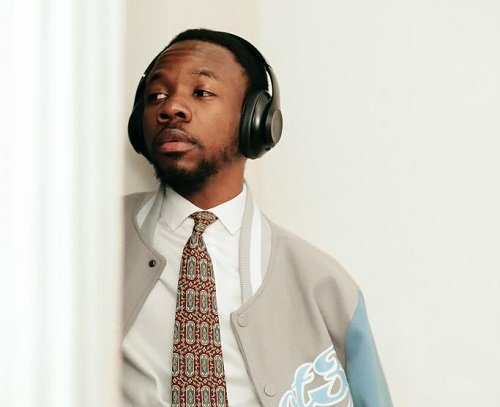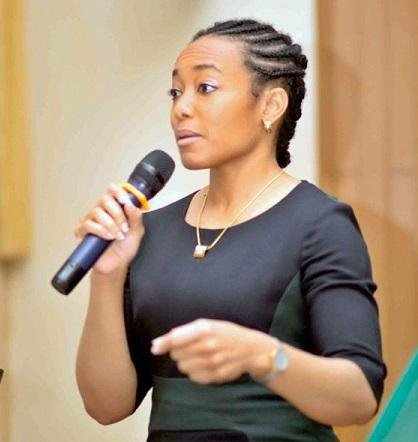Hot!
Koo Kusi, making giant strides in the music industry

● Koo Kusi, the rapper
Music is a powerful tool in the hands of musicians but not all musicians are capable of handling it well. Some go to the extent of producing less worthy contents that incite social vices among the youth.
However, other musicians stand out with their noteworthy contents on education, romance, folklore, current affairs and many more. One of such musicians is a Texas-based Ghanaian rapper, Koo Kusi, who uses his music to talk on sentimental issues which traumatise the youth.
His recent album, ‘Greetings from Abroad,’ paints a picture of the country’s economic woes affecting the youth in various spheres of life and how they cope with the situation. The 7-track extended play gives an account of a Ghanaian immigrant from what pushed him to leave his current situation and perseverance in life.
Interacting with The Spectator, he said the theme of the album is centred on fear. This includes the immigrant’s fear of not meeting his expectations, fear of failing in Ghana and not delivering to his loved ones after leaving Ghana.
Koo Kusi whose real name is Nana Kofi Kusi-Boadum, stated that his stories were on mental health issues, thus most of the things were in tune with psychology in the social regard.
“Music can be therapeutic serving as an aid in certain disorders, to establish physical, mental and emotional well-being. Instead of giving you the complex science that I practise every day, my stories are on related issues that portray the challenges my audience face,” he expressed.
According to Koo Kusi, every song on the album is a different chapter that touched on the same theme, and it has been received well by the youth on social media.

COVER ART AND THE SONGS
Taking this reporter through his work, Koo Kusi touched on the symbolism of the cover art and how each artwork, resonated with the songs on his album.
At the top left of the album cover, is a ‘Rich Dad, Poor Dad’ with faded yellow T-shirt of Ghanaian hip-hop artiste, Kojo Cue, depicting the first song on GFA. In that song, the immigrant fears he might be unable to do well for himself and his family due to the current hardships in the country.
“I am paying homage to Kojo Cue’s song that speaks on generational wealth and how one has to become successful for his family. However, the individual in my song fears that he may not be up to the task demanded by Kojo Cue,” he explained.
The next track, ‘From Abroad,’ resonates with a green passport bearing the title of the album and the Japa Nation logo (a globe with an aeroplane circling around it) inscribed on it, as well as a student identity card. Also, on the passport, there is an individual with two luggage in Ghana on the African continent.
In the song, the immigrant gains admission to a school abroad yet lacks financial means to leave the country. Therefore, he borrows money from his uncle with the assurance of paying off his debts, two weeks later. Again, both the song and art touch on the narrator’s pursuit of seeking greener pastures even if, it is on the ticket of a student visa.
“The youth in Africa are naïve about the happenings abroad. Payment of health insurance is compulsory and expensive as compared to the situation at home. You must pay $2000 dollars per semester,” he noted.
The third track, ‘Agya Amo Calling’ cites the pressure bedevilled by the narrator due to his delay in paying back his uncle. The narrator is unable to pay his debts because of the exchange rates abroad. Therefore, he would have to convert the cedis to dollars before transacting smoothly. Besides, the cedis won’t match up to the dollars after the conversion.
In ‘No Where Cool,’ Koo Kusi paints the narrator’s ordeals and the harsh reality of gun violence in America to his colleague in Ghana, who also wishes to migrate. The track features another rapper, RBD, who explains why he anxiously wants to leave Ghana.
“On my part, I tell a story of a young Ghanaian child who was a victim to gun violence here in the States. This happened because his uncle wanted to make the father proud by bringing him here,” he said.
With all these fears harboured by Koo Kusi, he transitions them onto the next track, ‘Greatest Fear.’ This emphasises his fear to deliver despite the perception his family and friends have, regarding his academic successes and creative skills.
Unable to meet society’s expectations, the rapper hints suicide in his songs, however, he resists the temptation with the last songs on the EP, ‘5Foot3 Creed’ and ‘Nsuro.’
‘5Foot3 Creed’ correlates with antidepressant pills lying atop the passport of the cover art and, the Tribe of God shoes containing the passport and ID card matches with ‘Nsuro.’ Finally, there is a studio Kusi jacket (red and black chequered jacket) which signifies deviance over depression.
“The narrator isn’t giving in to the demands of suicidal thoughts, besides God is ordering his steps and he shall fear no evil,” he said.
FUTURE
Speaking about his future prospects, Koo Kusi informed his impatient fans to keep their fingers crossed for bigger projects in the future.
“5Foot3 was on inferiority complex and GFA was on fear, anxiety and depression. Hopefully, the next one would be on another essential issue,” he said.
He expressed excitement at how the album has positively affected his audience in relation to the tones of messages he has been receiving.
Although he began rapping since high school, Koo Kusi’s style of rapping on topical issues was shaped by an art group called Sasa, which he joined at the Kwame Nkrumah University of Science and Technology in Ghana in 2019
He was the recent winner of a viral video open verse challenge of Ghanaian rapper, Manifest’s “Clean and Pure” song.
Koo Kusi who is also a trained pharmacist, is currently pursuing a PhD in neuroscience and pharmacology in the United States of America.
By Yunusah Essandoh
Hot!
Ghana to locally refine its gold starting October 2025 – Sammy Gyamfi

The Chief Executive Officer of the Ghana Gold Board, Sammy Gyamfi, has announced that plans are far advanced for the establishment of a state-owned gold refinery in the country.
Speaking at the 2025 Minerals and Mining Convention, Mr Gyamfi said the refinery will process locally mined gold into bullion instead of exporting it in its raw state.
According to him, it is unacceptable that Ghana, despite being a leading gold producer in Africa, continues to export raw gold known as dore.
He explained that the Gold Board, working with the Bank of Ghana and local refineries, will from October 2025 begin refining gold locally.
He also disclosed that an ultramodern assay laboratory will be built to ensure international standards in testing gold quality.
Mr Gyamfi noted that the refinery will be wholly state-owned and will help Ghana move away from raw mineral exports to value addition.
This, he said, will boost foreign exchange earnings, create jobs, and position Ghana as a hub for gold refining and jewellery production in Africa.
The CEO stressed that the project forms part of government’s strategy to ensure the country benefits fully from its natural resources and to transform the mining sector into a driver of economic growth.
By: Jacob Aggrey
Hot!
There is strength in diversity; let’s live in peace – Zanetor Rawlings urges Ghanaians

Member of Parliament for Korle Klottey, Dr. Zanetor Agyeman-Rawlings, has urged Ghanaians, especially the youth, to value the peace the country enjoys and to see diversity as a source of strength.
Speaking at the National Youth Conference held at the Pentecost Convention Centre under the theme “Igniting Potential; Inspiring Change”, she warned against being lured into conflicts and divisions fueled by reckless statements from politicians, traditional leaders, religious figures, or academics.
According to her, many young people have no idea what it means to live in a country torn apart by war, and therefore must not take Ghana’s peace for granted.
She stressed that the harmony among different ethnic and regional groups should be protected at all costs, since it is peace that allows citizens to gather freely and safely.
Dr. Zanetor said Ghana’s development depends on embracing diversity and working together.
She urged the youth to tap into this strength so that Ghana would continue to shine as the “Black Star” of Africa and serve as an example for other nations.
She expressed appreciation to the participants for attending the conference and asked for God’s blessings on the country.
By: Jacob Aggrey






